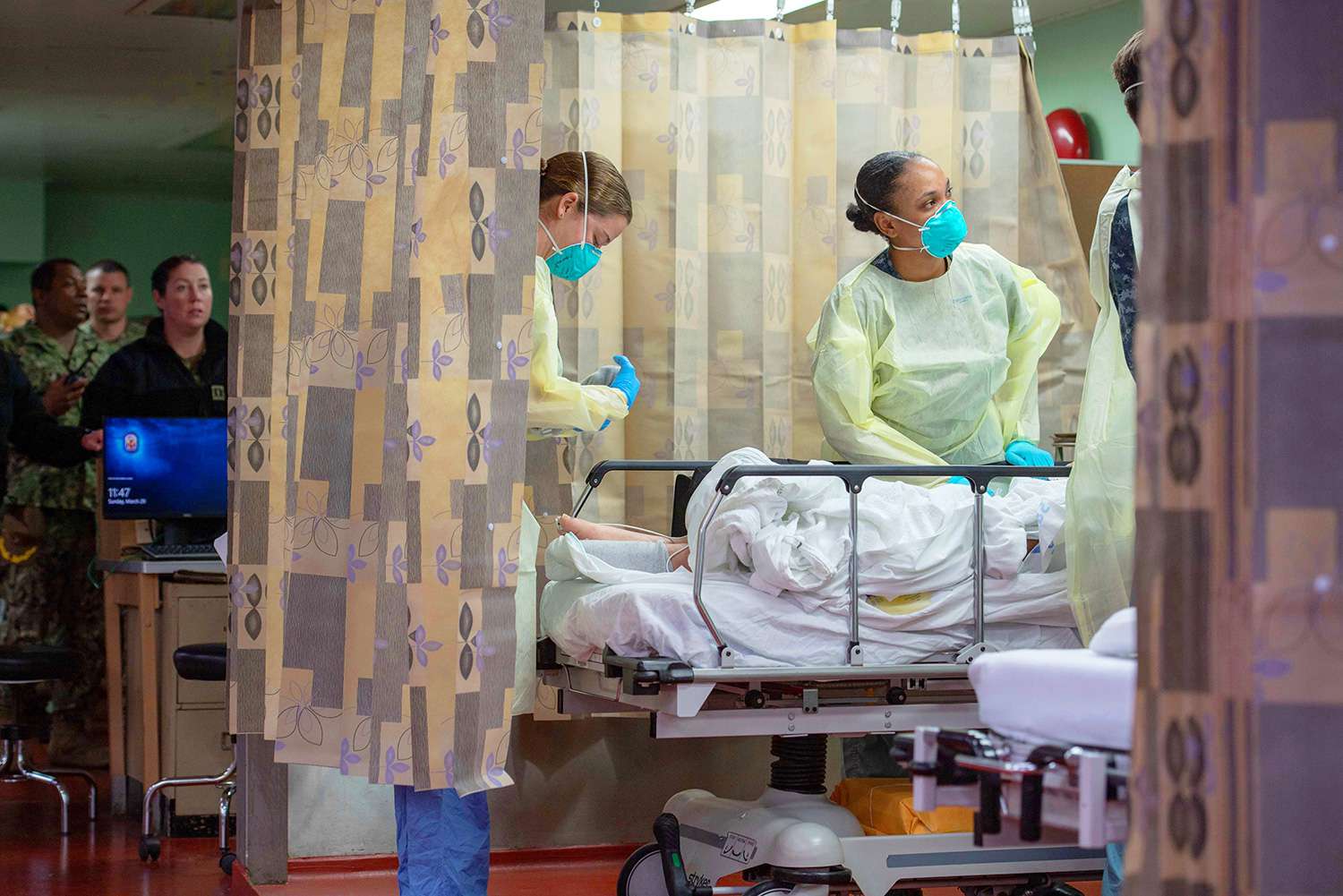
Nearly all of the patients hospitalized for the new coronavirus, COVID-19, had chronic health issues, a large study of thousands of patients in New York City found.
All but 6 percent of patients who needed hospitalization had one preexisiting condition, and the majority — 88 percent — had two or more.
The study, published in the Journal of the American Medical Association, used data from around 5,700 COVID-19 patients who were admitted between March 1 and April 4 to 12 Northwell Health hospitals in New York City, Long Island and Westchester.
The patients had a variety of chronic health conditions, with hypertension, obesity and diabetes being the most common.
Of the 5,700 patients, a small portion, 14.2 percent, were moved to the intensive care unit, and 12.2 percent were put on a ventilator. Those patients made up a significant portion of deaths, and 88.1 percent of the people on a ventilator died. Patients who were not put on ventilators died at lower rates — 19.8 percent for those between 18 and 65 years old, and 26.6 percent for those over 65.
The patients were also primarily male. Men accounted for 60 percent of the patients, and were less likely to survive. Of the 553 patients who died, 60 percent were male. Health experts have previously noted the higher rates of death in men, and said that it may be because women tend to have stronger immune responses to viruses.
However, the researchers emphasized that the study, while the largest analysis of U.S. hospital data during the COVID-19 pandemic, is an observational look at the data from these hospitals, and that there is no comparison group.
“We’re simply describing the patients who came in and required hospitalization,” Karina Davidson, a senior vice president at the Feinstein Institutes for Medical Research and lead author, told The New York Times. “We are not comparing them to those who were positive and stayed out of the hospital, or who didn’t get infected, or to patients with any other disease.”
Additionally, the patients spent four days on average at the hospitals, a fairly short stay, which may indicate that people did not come into the hospital until late in their illness, and that no medical intervention would have worked.
The findings echo a Centers for Disease Control study published earlier this month that determined that around 90 percent of COVID-19 hospitalizations were patients with similar preexisiting conditions to the Northwell study.
But “the number of patients who had chronic comorbidities surprised us,” Davidson told the Times.
As information about the coronavirus pandemic rapidly changes, PEOPLE is committed to providing the most recent data in our coverage. Some of the information in this story may have changed after publication. For the latest on COVID-19, readers are encouraged to use online resources from CDC, WHO, and local public health departments. PEOPLE has partnered with GoFundMe to raise money for the COVID-19 Relief Fund, a GoFundMe.org fundraiser to support everything from frontline responders to families in need, as well as organizations helping communities. For more information or to donate, click here.
Source: Read Full Article